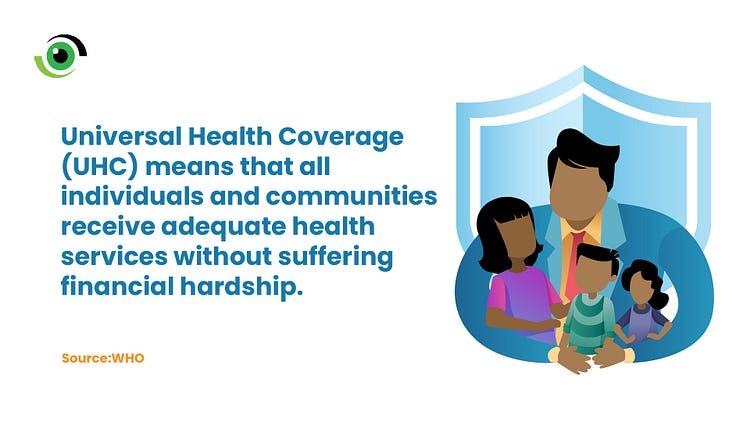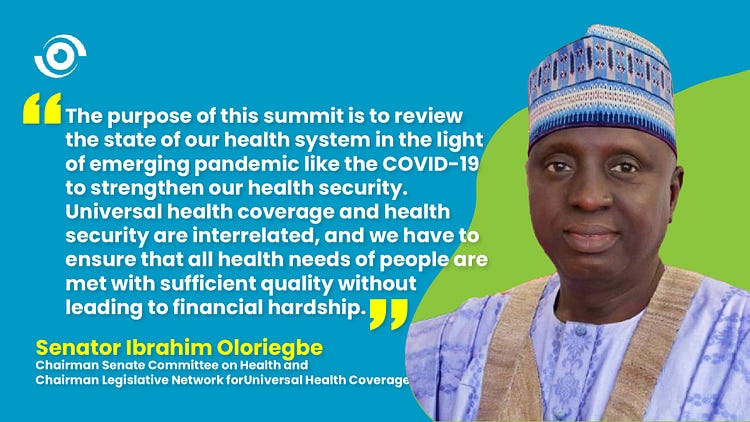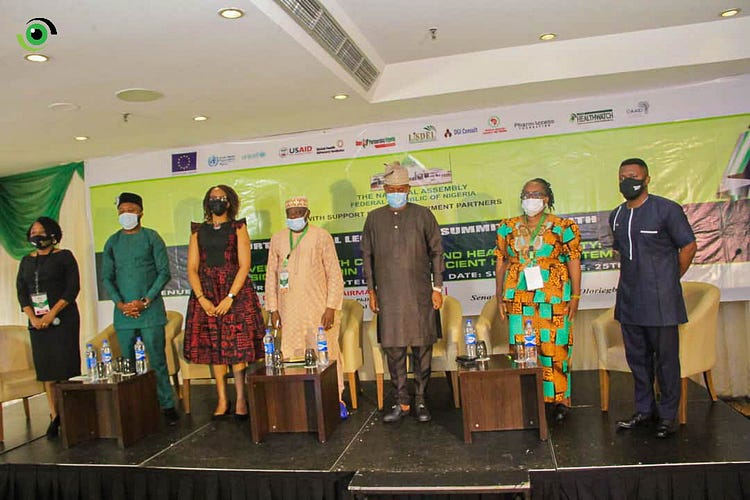There is a global consensus on the importance of strengthening health systems to deliver quality and affordable healthcare to communities, to make them more effective and efficient, and to prepare, detect and respond to disease outbreaks.
According to the World Health Organization (WHO), Universal Health Coverage (UHC) means that all individuals and communities receive adequate health services without suffering financial hardship. It includes the full spectrum of essential, quality health services, from health promotion to prevention, treatment, rehabilitation, and palliative care across the life course.
Currently, most low-and-middle-income countries are implementing strategies that aim to accelerate progress towards UHC. At the first-ever UN high-level meeting on UHC in September 2019, member states reaffirmed their commitment to achieving UHC by 2030 and asserted the right of people to enjoy the highest attainable standard of physical and mental health as an integral part of the Sustainable Development Goals (SDGs).

Health security involves preventing, detecting and responding to infectious disease threats of international concern to limit the impact on lives, and the well-being of people and countries. Low and middle-income countries like Nigeria consistently respond to different disease outbreaks, including the Ebola Virus Disease in 2014 and Lassa fever outbreaks and currently the COVID-19 pandemic. The COVID-19 pandemic has emphasised the need to build resilient health systems to prevent disease outbreaks and provide quality healthcare according to the needs of the populace.
Legislating Nigeria to Universal Health Coverage
Achieving UHC for Nigeria requires coordinated efforts from stakeholders at different levels in the country. The legislature, both at the federal and state levels, are critical stakeholders in ensuring the creation of evidence-based health policies and providing oversight for the effective implementation of these policies.
The Legislative Network for Universal Health Coverage (LegNet4UHC) was launched in 2017, gathering legislators from the 36 states of the Federation — Speakers of the State Houses of Assembly, House Clerks, Chairs of Health and Appropriation — for learning, knowledge and experience sharing on a wide variety of health issues as they relate to the legislature. Its overall objective is to effectively leverage statutory functions of the legislature in Nigeria for improved health financing, toward effective and efficient utilisation of the resources for Universal Health Coverage.
The Network recently concluded its fourth annual summit, themed “Universal Health Coverage and Health Security: Two Sides Of A Coin For An Efficient Health System”. The summit convened under the leadership of Senator Ibrahim Yahaya Oloriegbe, Chairman Senate Committee on Health and Chairman Legislative Network for Universal Health Coverage, Senator Chukwuka Utazi, Chairman Senate Committee on Primary Health Care and Communicable Diseases, and Honourable Tanko Sununu, Chairman House of Representatives Committee on Healthcare Services.

The focus of the summit was to review the progress of legislative programs towards UHC and set a new legislative health agenda for the year while reviewing the current situation of Nigeria’s health system and how it has fared in response to disease outbreaks, particularly in the context of the COVID-19 pandemic. It also identified how the legislature can contribute to strengthening the health system to better respond to disease outbreaks through their legal capacities.
The Summit explored ways to accelerate the implementation of the National Health Act and the importance of legislative frameworks at the sub-national level. Participants discussed the extent of BHCPF implementation, and the steps required to accelerate progress. Lawmakers were exposed to the concept of Human Capital for Development (HCD) including the contribution of health to the HCD.
Senator Ibrahim Oloriegbe in his opening remarks, said, “The purpose of this summit is to review the state of our health system in the light of emerging pandemic like the COVID-19 to strengthen our health security. Universal health coverage and health security are interrelated, and we have to ensure that all health needs of people are met with sufficient quality without leading to financial hardship.”

Recommendations:
It is important to take note of some key commitments at the summit to hold the legislators accountable and ensure the legislative network delivers:
- In a bid to strengthen governance and leadership of the health system legislatively, the Legislative Network for Universal Health Coverage committed to creating strong legal frameworks to strengthen the healthcare system.
- In encouraging local resource mobilisation, the network committed to designing institutional arrangements for resource mobilisation through pro-health/sin taxes on alcohol, sugar, tobacco and mining.
- There were additional commitments aimed at closing health service delivery and health security infrastructure gaps in the country, ensuring that current National Assembly targets of allocating 8–9% of the country’s annual budget to health are achieved before the end of its tenure, amending the National Health Act to split the allocated 5% for emergency into 3% for Nigeria Centre for Disease Control (NCDC) and 2% for medical emergencies, and ensuring that states key into all the health policies particularly the full implementation of State Social Health Insurance Schemes and Primary Health Care.
The role of legislative leadership in improving health security through universal health coverage is imperative. Leadership for health must encompass more than strategies and plans but involve the active implementation of resolutions. There must be effective community engagement to ensure the effectiveness of these policies. Indeed, universal health coverage and health security are two sides of the same coin. It is impossible to achieve one without the other.


